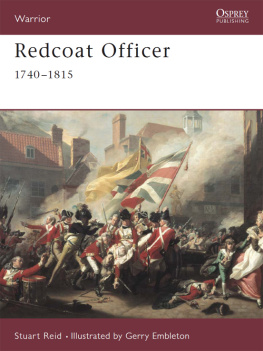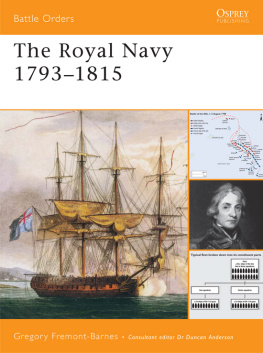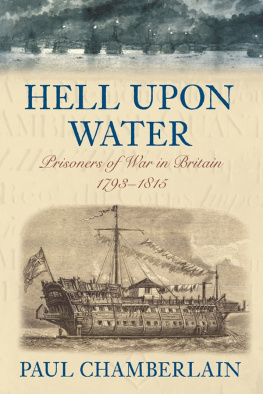This edition is published by PICKLE PARTNERS PUBLISHING www.picklepartnerspublishing.com
To join our mailing list for new titles or for issues with our books contact@picklepartnerspublishing.com
Text originally published in 1913 under the same title.
Pickle Partners Publishing 2013, all rights reserved. No part of this publication may be reproduced, stored in a retrieval system or transmitted by any means, electrical, mechanical or otherwise without the written permission of the copyright holder.
Publishers Note
Although in most cases we have retained the Authors original spelling and grammar to authentically reproduce the work of the Author and the original intent of such material, some additional notes and clarifications have been added for the modern readers benefit.
We have also made every effort to include all maps and illustrations of the original edition the limitations of formatting do not allow of including larger maps, we will upload as many of these maps as possible.
The Life of A Regimental Officer During the Great War 1793-1815
COMPILED FROM THE CORRESPONDENCE OF
COLONEL SAMUEL RICE, C.B., K.H.
51ST LIGHT INFANTRY
AND FROM OTHER SOURCES
BY
LIEUT.-COL. A. F. MOCKLER-FERRYMAN
PREFACE.
THE period of English history covered by the contents of this book is one of very considerable interest, for within that period Great Britain rose to be a mighty power, saving Europe from destruction, and gathering to herself the commerce of the world. One has only to glance at a chronological table of events to satisfy oneself that, from 1793 to 1815, the British Navy and British Army fought continuously and desperately in the making of the Empire, winning many great and glorious victories by sea and by land, and handing down to posterity the names of British sailors and soldiers to be sworn by as long as the British Empire shall exist. It was an age of heroic deeds by heroic men. Let us call to mind how the Navy fought at Cape St Vincent, Camperdown, the Nile, Copenhagen, and Trafalgar; and how the Army fought in the Peninsula and at Waterloo. Let us think of the countless minor expeditions in all parts of the world in which army and navy together added to their laurels; of such sailors as Nelson, Cochrane, Collingwood, Duncan, Hood, Hawke, Howe, Hotham, Jervis, and others, and of such soldiers as Wellington, Moore, and all the formers famous generals; and let us remember that it was by such victories, won by such men, that England gained her place in the world.
The stories of the lives of the great soldiers have been written over and over again; we know all about their strategy and their tactics, and how they guided the machines confided to their care; but of the lesser men, who, as it were, helped to turn the wheels of, or to apply oil to, the machinery, we know very little. Without their aid the machine must have come to a stop; and how they kept it going deserves to be remembered.
Samuel Rice, extracts from many of whose letters will be found in the following pages, was one of a host of Englishmen who played a parteven though it may have been an insignificant onein the making of the Empire. He was, in every sense of the word, a Regimental Officerone who never sought and never accepted employment outside the Regiment. Joining the 51st in 1793 as Ensign, he served with it, in good times and in bad, until 1831, the last fourteen years in command. He represents a type not uncommon at the commencement of the last century; and, at that period, probably most regiments of the British army contained men of the same stamp, who cared nothing for personal honour or glory, who cared little for the good or bad opinion of their superior officers, but who lived for THE REGIMENT, finding their reward in a conscientious performance of regimental duty, and content to let their own actions go unnoticed so long as they helped to uphold the reputation of their beloved Regiment.
Nowadays, such men, from force of circumstances, are rare. The British officer can no longer afford to remain with his regiment; for, even if he is fortunate enough to possess sufficient private means to do so, he can stay in the regiment for only a limited number of years, and is forced to make way for others when still in the prime of life. And there are wider reasons for the disappearance of the regimental officer of the old school. Modern methods of warfare, resulting from the improvement in weapons and the invention of new means of locomotion and communication, require deeper thought and deeper study than was accorded to military matters by our ancestors. It is not enough that the officer of to-day should be acquainted only with such things as pertain to his own branch of the service; for he must be conversant with the tactics of all arms, and he must know a hundred and one other things which he cannot learn by remaining with his regiment. Furthermore, the officer who nowadays has no ambition beyond regimental soldiering is liable to be regarded as lacking in zeal and efficiency; and if he allows himself to drift along into the regimental backwater, he is bound to find his progress barred before very long. But he has advantages such as his ancestors never had. By passing examinations he can qualify himself to hold appointments on the staff, and he can obtain other living wage employment away from his regiment. A century ago there was nothing of this kind; examinations were little indulged in; and it is not too much to say that the majority of the staff officers came to the front and remained in the front by personal (and often political) interest by a system of nepotism pure and simple. The officer, therefore, who knew that he had no friend at court to push him on made up his mind to remain with his regiment, and trust to good fortune to bring him rapid promotion. He affected to despise the staff officer as a butterfly and a place-seeker, and he threw all his heart into his regimental duties. If proof of the value of these regimental officers is wanting, it will be found, writ large, in the account of every Peninsular fight, and by the aid of these men was Wellingtons fame built up. Their most marked characteristics, says Colonel Hend erson, when discussing in his Science of War the officers of the Light Division regiments, were that when they were left alone they almost invariably did the right thing; that they had no hesitation in assuming responsibility; that they could handle their regiments and companies, if necessary, as independent units; and that they consistently applied the great principle of mutual support. Such were the regimental officers who had received their initial training under the guidance of Sir John Moore, and such was Samuel Rice, of the 51st Regiment, himself one of the earliest disciples of that great master of the art of war.
By way of apology for bringing to notice a man unknown to fame, and who had no pretensions to be considered famous, I may, perhaps, be permitted to explain that, in putting this book together, my aim has been not so much to give a biographical sketch of one individual as to describe the lot of an ordinary regimental officer of the period; and it seems to me that there is no more satisfactory way of doing this than by following the career of one officer, chosen to represent the type. With such an object in view, I believe that it would be difficult to find a more suitable representative than Colonel Samuel Rice, who served with the same regiment for upwards of thirty-eight yearspossibly in itself a record. Moreover, he fought with his regiment in 1793, at the very commencement of Englands great war in Europe, and he saw the final shots fired in 1815. From what is known of his character, it is probable that Samuel Rice would have been the last person to have desired notoriety; but his descendants have preserved, hitherto unpublished, letters written by him one hundred and twenty years ago, and I have thought that some of these, showing as they do the ways of the military world when Englands reputation was being made, are of sufficient general interest to be worthy of publication.









